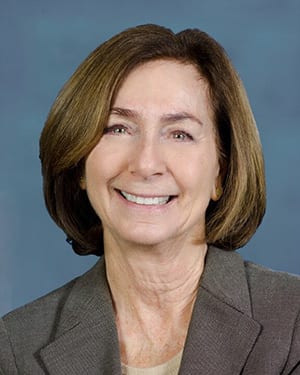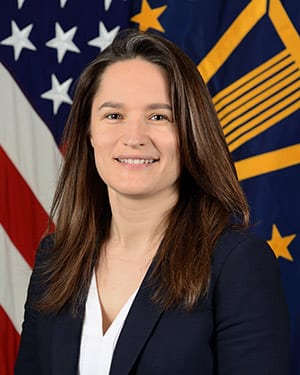By Andrew Cohen
For Berkeley Law, offering courses on emerging legal issues is only part of the priority puzzle. The school also ensures that proven experts illuminate those issues.

Ann Ravel, who will teach Legal Profession during the fall semester, recently headed the Federal Election Commission (FEC). Her fall course explores the ethical issues facing all lawyers, including rules of professional conduct, and teaches students how to confront such dilemmas.
“Lawyers need to be constantly aware of these issues that arise in the course of the practice of law, and aware that there are no simple answers about how to resolve them,” said Ravel, who will also teach election law seminar this spring.
Before joining the FEC, Ravel directed the California Fair Political Practices Commission, overseeing the regulation of campaign finance, lobbyist registration and reporting, and ethics related to officeholders and public employees. She also served as Deputy Assistant Attorney General for Torts and Consumer Litigation at the U.S. Justice Department, and was named the State Bar of California 2007 Public Attorney of the Year for her contributions to public service.
Ravel resigned from her FEC post in February and published a 25-page document on how the agency’s “dysfunction and deadlock” continually stymied meaningful progress. “Three lawyer commissioners did not believe in the law and were purposely refusing to enforce it in those matters that had an impact on public confidence in the electoral process,” she said. “As a lawyer and a public servant, I recognized that I could not remain silent about this failure to fulfill the mission of an important agency.”
During Ravel’s FEC tenure, she spoke to many student groups from law schools and colleges throughout the country. A UC Berkeley graduate, she savors her return to campus—and a chance to share her passion for the law.
“I love being a lawyer,” Ravel said. “It has enabled me to make a difference by working in public service. But the diversity of the practice of law provides opportunities for interesting and important work, no matter what field. Lawyers play a significant and unique role in the justice system and in society, which makes law a truly consequential profession.”
New lecturers, new courses

Beth George, another new lecturer with high-level government experience, will teach Surveillance Law and Technology. Beyond analyzing the current legal terrain, and whether it strikes the right balance of privacy and security, George will delve into legal and policy inconsistencies and highlight how they have been shaped over time.
“I want to enable students to think strategically about emerging technologies,” she said. “This isn’t only important for future government lawyers. For those who plan to practice in the tech industry, for example, they’ll need to think critically about how they should advise clients to engineer their products, and the potential legal consequences for collecting or retaining certain data.”
A deputy general counsel for legislation in the U.S. Defense Department and associate counsel in the White House Counsel’s Office, George directed the response to the largest cybersecurity breach of the U.S. government. She also worked as an honors attorney at the Justice Department’s National Security Division, and was its first attorney assigned to the Senate Select Committee on Intelligence.
Practicing before the Foreign Intelligence Surveillance Court, George “realized that what I had learned in law school regarding the government’s authorities only skimmed the surface of the practical realities of national security investigations. The legal and policy issues surrounding surveillance and privacy are major debates of our time.”
Much like the legal and policy issues surrounding corporate governance, which Visiting Professor Assaf Hamdani tackles in Snap, Google and Fox: Corporate Governance at Controlled Companies.

The course probes “how the corporate governance landscape is undergoing dramatic changes in opposite directions,” said Hamdani, a professor at Hebrew University’s Faculty of Law. “Institutional investors are becoming more powerful, with activist hedge funds increasingly challenging companies and their managers. Meanwhile, entrepreneurs have shown growing interest in taking companies public and leaving investors with no power to intervene in corporate decision making.”
As more companies operate with a controlling shareholder, Hamdani examines the challenges and opportunities that such businesses raise for courts, investors, and lawmakers. “I hope that students will become familiar with both the doctrine governing controlled companies and the fundamental policy tradeoffs that underlie it,” he said.
The academic director of the European Corporate Governance Institute, Hamdani has also served as commissioner of the Israel Securities Authority and chair of the Israel Ministry of Finance’s Committee on Institutional Investors and Capital Markets. As a corporate law scholar, he relishes working with “Berkeley Law’s exceptionally strong group of researchers in the fields of corporate law, financial regulation, securities, and law and economics.”
More new fall courses
Police Interrogations and Investigations: A Comparative Perspective compares the early stages of criminal investigations in justice systems around the world, with a focus on interrogations by police and prosecutors. Taught by Professor Charles Weisselberg, faculty director of the Sho Sato Program in Japanese and U.S. Law, the seminar tracks the ways in which reforms influence how investigations are conducted and evidence is collected.
Debt, Discrimination, and Inequality highlights the enormous role that debt plays in society—from positive aspects such as facilitating home purchases to negative aspects such as curbing social mobility. Taught by Professor Abbye Atkinson, the course explores how economic and social inequalities fuel financial distress, particularly within secured lending and education, and how consumer law responds—or does not respond—to such realities.
Open Source Investigations Seminar and Practicum: Using Social Media to Generate Evidence of War Crime trains students to conduct investigations that use publicly-accessible, internet-based sources to develop evidence for advocacy and legal accountability. Taught by Human Rights Center Faculty Director Eric Stover and Executive Director Alexa Koenig, the seminar liaises with the center’s Human Rights Investigations Lab on international atrocity cases.
Practice 99: How to Open Your Own Practice offers strategies—from developing a sound business model to fostering a customer base—for opening a law office that serves clients of limited means in remote regions. Taught by William Kell, director of the New Business Practicum within the school’s Startup@BerkeleyLaw initiative, the course is a collaborative endeavor among three law schools that serves the Central Valley and other rural communities.
The Role of the Lawyer in Advancing Corporate Responsibility tracks the shift of in-house lawyers from technical to strategic adviser and their role in steering sustainability and corporate responsibility. Taught by Amelia Miazad ’02, founding director of the school’s Initiative on Corporate Responsibility and the Law, the course features general counsel from top companies who share their insights and take part in classroom discussions.